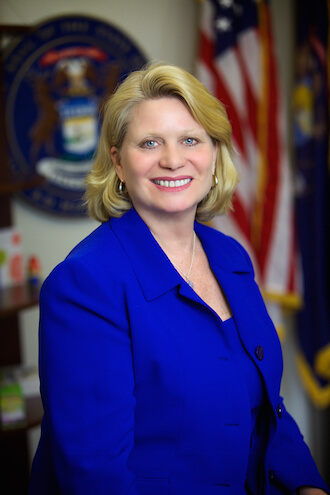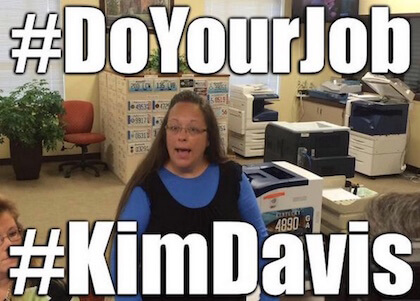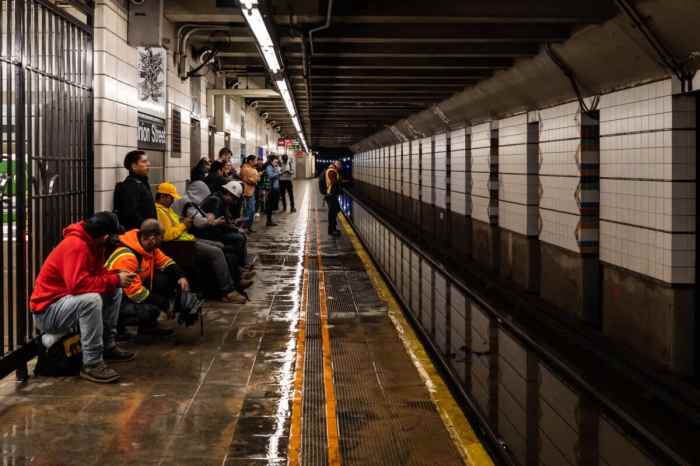BY ARTHUR S. LEONARD | In an astonishing departure from established precedents, US District Judge Juan M. Pérez-Giménez of the Puerto Rico District Court, who had dismissed a marriage equality lawsuit in October 2014, has issued a new decision asserting that the Supreme Court’s Obergefell v. Hodges ruling last June 26 that the Constitution’s 14th Amendment protects the right of same-sex couples to marry does not necessarily apply to Puerto Rico.
Pérez-Giménez ’s ruling was announced on March 8.
Lambda Legal represents the plaintiffs in the marriage equality case, Vidal v. Garcia-Padilla, that Pérez-Giménez dismissed 17 months ago. When Lambda appealed his ruling to the First Circuit Court of Appeals, that court held up ruling until after the Supreme Court decided Obergefell.
Juan M. Pérez-Giménez had dismissed Lambda lawsuit in 2014
On July 8 of last year, the First Circuit vacated Pérez-Giménez ’s decision and sent the case back to the district court “for further consideration in light of Obergefell v. Hodges.”
In its brief order, the First Circuit also stated that it “agrees with the parties’ joint position that the ban [on same-sex marriage] is unconstitutional.”
A week later, the parties filed a joint motion asking for a declaration that Puerto Rico’s statutory ban on same-sex marriage is unconstitutional as well as an injunction ordering the commonwealth government not to enforce it.
Pérez-Giménez , in his latest ruling, explained that in Obergefell the Supreme Court invoked the 14th Amendment’s Due Process and Equal Protection Clauses to hold that the same-sex marriage bans in the four states within the Sixth Circuit –– Ohio, Michigan, Ohio, Tennessee, and Kentucky –– were unconstitutional because they deprived same-sex couples of a fundamental right to marry. He also noted that some lower federal courts have asserted that Obergefell v. Hodges was technically ruling on the state constitutions and laws of those four states and thus had not automatically mooted cases pending in the Fifth, Eighth, and 11th Circuit Courts of Appeals involving marriage bans elsewhere. Those circuit courts, however, quickly issued rulings applying Obergefell as a precedent to the marriage equality cases within their jurisdictions.
More significantly, Pérez-Giménez claimed that because Puerto Rico is neither a “state” nor an “incorporated territory,” but rather an “unincorporated territory” with extensive self-government rights under a federal statute making it a “commonwealth,” there is some question whether the Supreme Court’s Obergefell ruling is a binding precedent there. The 14th Amendment, he pointed out, provides expressly that “no state” may deprive a person of due process or equal protection, and since Puerto Rico is not a state the 14th Amendment’s applicability is not clear. He cited a variety of older Supreme Court decisions making the general point that the US Constitution do not necessarily apply to Puerto Rico in all circumstances.
What he neglected to cite, however, was a case pointed out by Joshua Block, an American Civil Liberties Union attorney who spoke with Chris Geidner of BuzzFeed.com shortly after Pérez-Giménez issued his ruling: a 1976 Supreme Court decision in Examining Board of Engineers v. Flores de Otero, in which the high court stated, in an opinion by Justice Harry Blackmun, “The Court’s decisions respecting the rights of the inhabitants of Puerto Rico have been neither unambiguous nor exactly uniform. The nature of this country’s relationship to Puerto Rico was vigorously debated within the Court as well as within the Congress. It is clear now, however, that the protections accorded either by the Due Process Clause of the Fifth Amendment or the Due Process and Equal Protection Clauses of the Fourteenth Amendment apply to residents of Puerto Rico.”
In that case, the Supreme Court was considering the constitutionality of a local Puerto Rico statute imposing a citizenship requirement before somebody could be licensed to practice as a civil engineer. The high court held that the requirement violated equal protection, based on precedents that imposed “strict scrutiny” on federal or state laws that discriminate based on alien status. The government must have a compelling justification before it can deny a right or benefit to somebody because they are not a US citizen, the Supreme Court found.
It appears, then, that Pérez-Giménez ’s insistence that the Supreme Court’s holding concerning the rights of same-sex couples under the 14th Amendment does not apply in Puerto Rico is contrary to a Supreme Court precedent.
Ignoring that, Pérez-Giménez found that “the right to same-sex marriage in Puerto Rico requires: (a) further judicial expression by the US Supreme Court; or (b) the Supreme Court of Puerto Rico; (c) incorporation through legislation enacted by Congress, in the exercise of the powers conferred by the Territorial Clause; or (d) by virtue of any act or statute adopted by the Puerto Rico Legislature that amends or repeals” the same-sex marriage ban.
Pérez-Giménez , however, in a footnote, observed that Governor Alejandro García Padilla had signed an executive order “just hours after the Supreme Court’s decision in Obergefell” directing Puerto Rico government officials to comply with that ruling. In a March 9 statement, García Padilla said he believed that the Supreme Court and the First Circuit had made clear that same-sex couples in Puerto Rico have the right to marry and that his government’s policy would not change.
Had there been any doubt that the Obergefell ruling applies to Puerto Rico, the First Circuit would have expressed that doubt as part of its consideration of the appeal from Pérez-Giménez ’s prior ruling in the case, when instead it expressly stated its agreement with the joint position from the parties that the Puerto Rico ban was unconstitutional.
Lambda Legal will promptly appeal this ruling to the First Circuit.


































